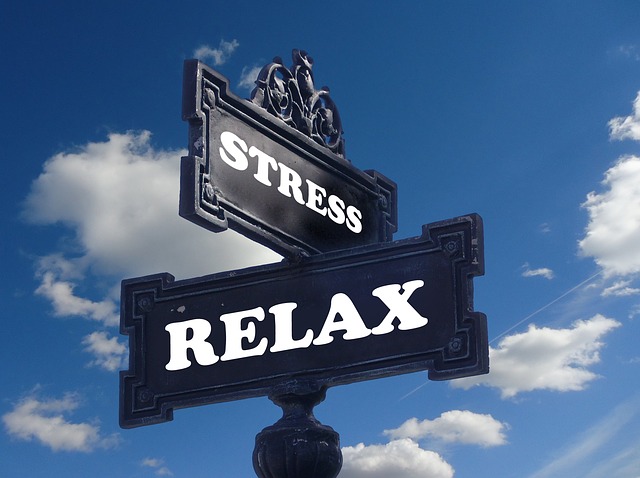Learn about brain health and nootropics to boost brain function
Ellen’s Answer to Work Stress


In 1862, the first year of the Civil War, Abraham Lincoln said, “With the fearful strain that is on me night and day, if I did not laugh, I should die.” Lincoln was well-known for his sense of humor, and had an acute awareness of its value in enabling him to endure the most trying of times.
Although most of us don’t have the weight of a nation’s fate resting on our shoulders, we all have experienced work stress in some form. It’s a universal experience with the potential to significantly impact both mental and physical health.
Stress occurs any time the body and mind are called upon to respond to a demand. It can arise from a one-time occurrence (such as a major accident or natural disaster) or one that is repeated over time (such as family and work stress).
These experiences cause the body to go into fight-or-flight mode. Muscles become tense, respiratory rate increases, the pulse quickens, the brain uses more oxygen, and levels of stress hormones cortisol and adrenaline spike.
The fight-or-flight response increases responsiveness to stressors to promote survival. But serious mental and physical health issues can develop if the stress is constant and long-term, as is the case with work stress.
With chronic work stress, the repetitive stress response in the body can lead to increased rates of high blood pressure, heart disease, obesity, insomnia, irritability, headaches, anger, sadness, viral infections, depression, anxiety, and a number of other mental and physical ills.
The APA’s recent Stress in America survey revealed that a majority of Americans cite work as a significant source of stress in their lives. Common work-related stressors include excessive workloads, conflicting demands, lack of control over one’s own work, work that isn’t challenging, work that isn’t meaningful, and low salaries.
While sources of work stress can sometimes be unavoidable, there are ways to mitigate the adverse effects on mind and body.
In 2006, researcher Lee Berk at Loma Linda University in California discovered that laughing lowers blood pressure. Berk found that just the anticipation of laughter was enough to boost production of mood-elevating hormones by 27% and immunity-enhancing human growth hormone by 87%.
In his study, Berk told a group of 8 men that they were going to be asked to watch a funny video that they had selected themselves. He told a group of 8 other men that they were going to be seated in a room with magazines.
Berk found that levels of stress hormones cortisol and adrenaline decreased before, during, and after the men watched the videos. Half-an-hour after they watched the videos, cortisol levels had decreased by 67% and adrenaline levels by 35%
What was most surprising about Berk’s study results was that cortisol decreased 39% and adrenaline decreased 70% before anything funny was even seen. Berk concluded, “It would seem that merely having a merry heart in anticipation of the happy experience lowered stress levels.” Berk’s conclusion was, “It’s no joke, we need to start prescribing humor as medication.”
Comedian Ellen DeGeneres couldn’t agree more with Dr. Berk. A true believer in the power of humor to relieve stress, she references another study with similar results to Dr. Berk’s in the below video. She explains how laughing makes the brain work better, improves memory, decreases stress hormones, lowers blood pressure, and increases the flow of endorphins through the blood stream, reducing the perception of pain while elevating your mood.
These positive effects are a reason why gallows humor is common in particularly stressful lines of work such as law enforcement, medicine, and the social services, where tragedies of the worst kind can be witnessed on a daily basis.
Without humor, the individuals employed in these capacities could quickly become overwhelmed by the weight of all the horrors and suffering they see. In such cases, humor becomes not only a coping mechanism, but a survival mechanism.
In addition to the proven physical and mental benefits of humor, Paul McGhee, Ph.D., author of Humor as a Management Tool, identified the following ways in which humor can improve the work environment:
Humor can strengthen bonds between coworkers, create rapport with customers, get and hold attention, strengthen memory of the points you want to be remembered, persuade others to see (and perhaps adopt) your point of view, make awkward communications less difficult, deflect criticism, reduce tension, frustration and anger, manage conflicts, reduce burnout, remove intimidating barriers between management and non-management employees, bolster eroding trust, boost morale and motivate employees, build resilience, stimulate creative problem-solving, sustain a positive attitude on the job, and keep everyday hassles and problems in perspective.
Management consultants are increasingly using humor as a tool in the workplace to enhance feelings of camaraderie and provide positive motivation for greater productivity and efficiency.
It’s been said that what you focus on expands. Abraham Lincoln recognized the potent protective value of turning one’s focus from the weight of their work to humor long before researchers such as Lee Berk and comedians like Ellen DeGeneres substantiated his beliefs.
Taking time to laugh and to find humor where there is otherwise only stress does not diminish the seriousness of the expectations and obstacles faced at work. Rather it aids in overcoming their adverse effects. If a little laughter can work for a man responsible for lifting a nation out of Civil War, then who can’t it work for?
Click here to view full article